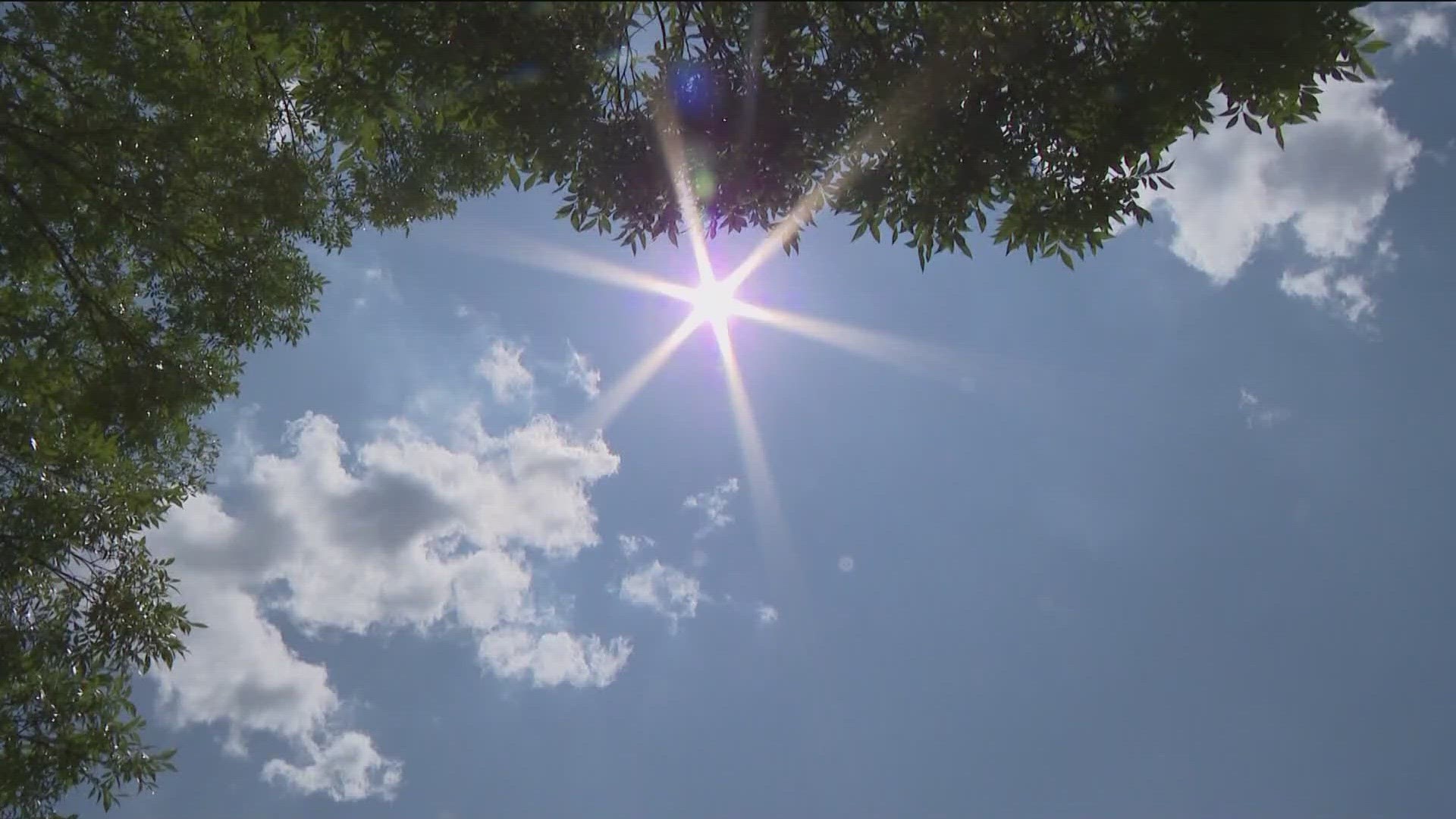ATLANTA — The City of Atlanta is aiming to be at the forefront of the climate crisis and is considering new strategies to protect residents from rising temperatures. Turns out, one solution literally grows on trees.
City leaders commissioned a study that documents disproportional impacts of the hot temperatures, showing certain neighborhoods are being hit harder and not just because it’s warmer but also because the cost to cool a home can be too expensive for many residents.
Now one organization wants the city to add more trees to help provide shade from the heat, which has impacted residents like Edie Calhoun Jr.
“I was running hot but I didn’t know I was going to fall out that morning,” said Atlanta resident Edie Calhoun Jr.
Calhoun didn’t just fall out, he had a mild stroke, which he says was induced by heat. Because of his condition, he now has to walk most places and he’s worried the recent hot temperatures could lead to more health problems.
“This heat and this latest weather like this, people have to be extra cautious because I’ve been down this road and through the trenches before when it gets this hot” added Calhoun.
He is not alone.
According to a recent study commissioned by Atlanta City Councilmembers Liliana Bakhtiari and Matt Westmoreland, many metro Atlanta neighborhoods are dealing with urban heating which disproportionately impacts minority communities.
“In the summer that we studied, we estimate about nine heat-related deaths across the city, and of course, that number is a lot higher when we talk about hospital visits. We estimate about 350 people went to the hospital that summer as a result of high heat exposure,” said Evan Mallen, a researcher and co-founder of Urban Adapt who completed the study.
Mallen said the study shows temperatures can be 22 degrees hotter in specific parts of the city, an issue he blames on several things including a lack of tree canopy.
“We have disproportionately impacted certain neighborhoods across the land we have in terms of heat and flood," he said. "Highest risk neighborhoods: Pittsburgh, English Avenue, Vine City, west end areas like this have significantly higher temperatures and stormwater runoff volume. We recommend citywide planting about 350,000 trees or on average about 1.400 per neighborhood."
The additional trees would cost about $35 million a year to maintain, but Mallen says it will reduce temperatures by about 5 degrees across the city.
In a joint statement issued by Councilmembers Bakhtiari and Westmoreland said the city could soon begin discussions on the issue of adding more trees and taking other preventative steps.
Read the full statement below:
“Atlanta is on the frontlines of the climate crisis. Beyond the already aggressive action undertaken by this Council to prepare our city for the climate future, we need to broaden the conversation with a strategic, operable plan that can keep pace with the challenge. This report, the most comprehensive of its kind ever commissioned by a major U.S. city, can serve as a sustainable blueprint for all development considerations and educate policymakers to safeguard our city and its residents from the undeniable impacts of extreme weather patterns.”

